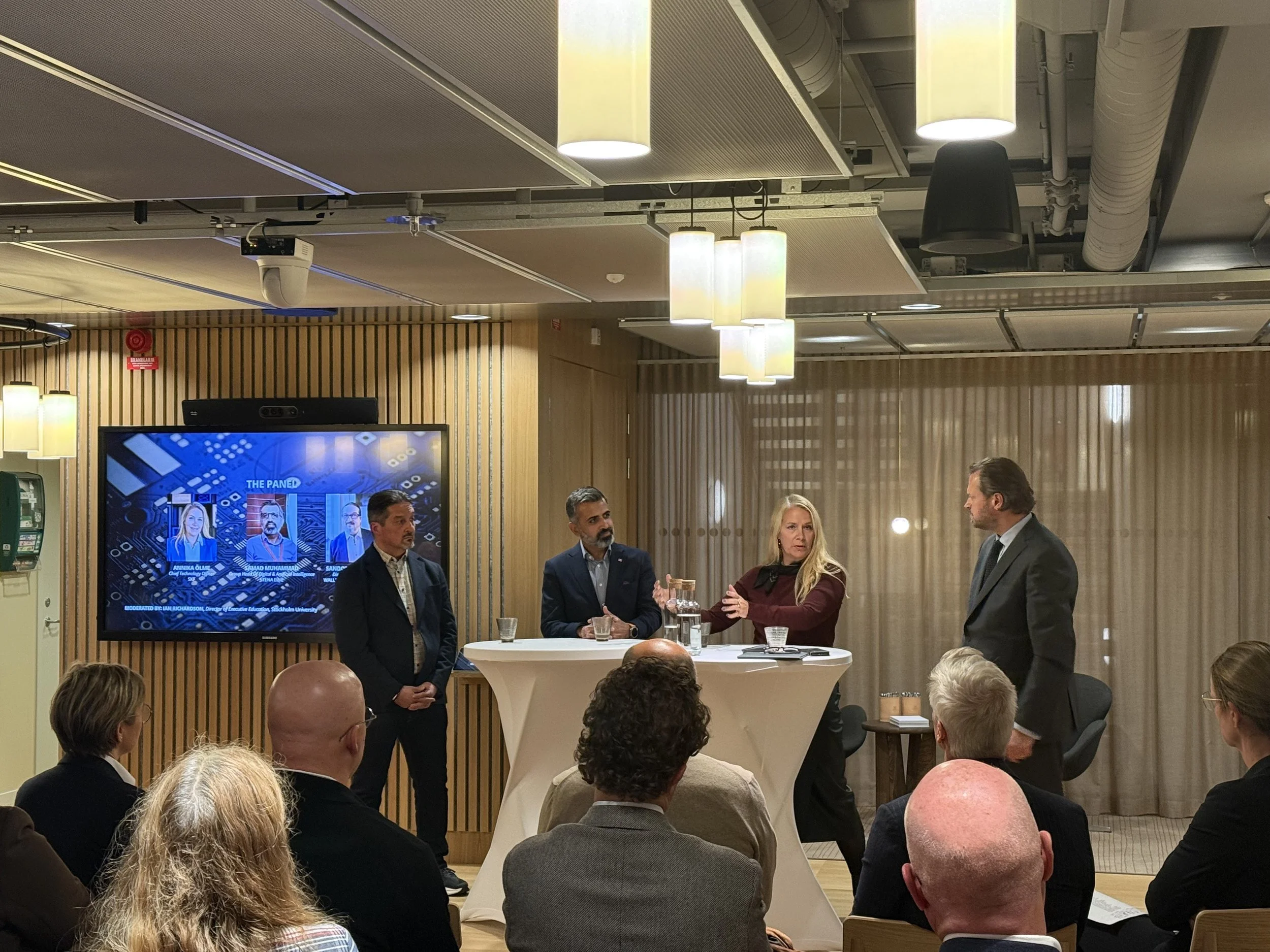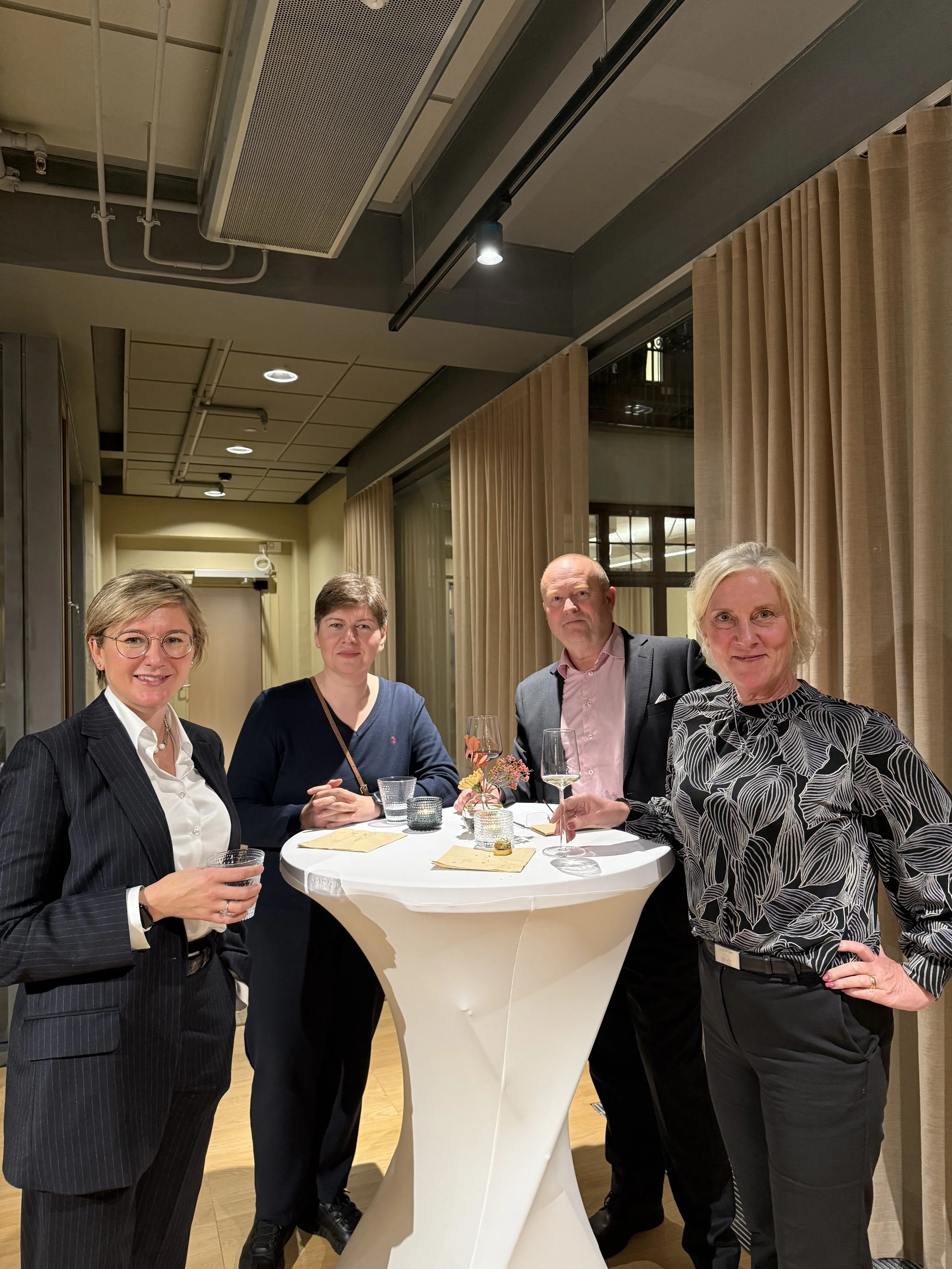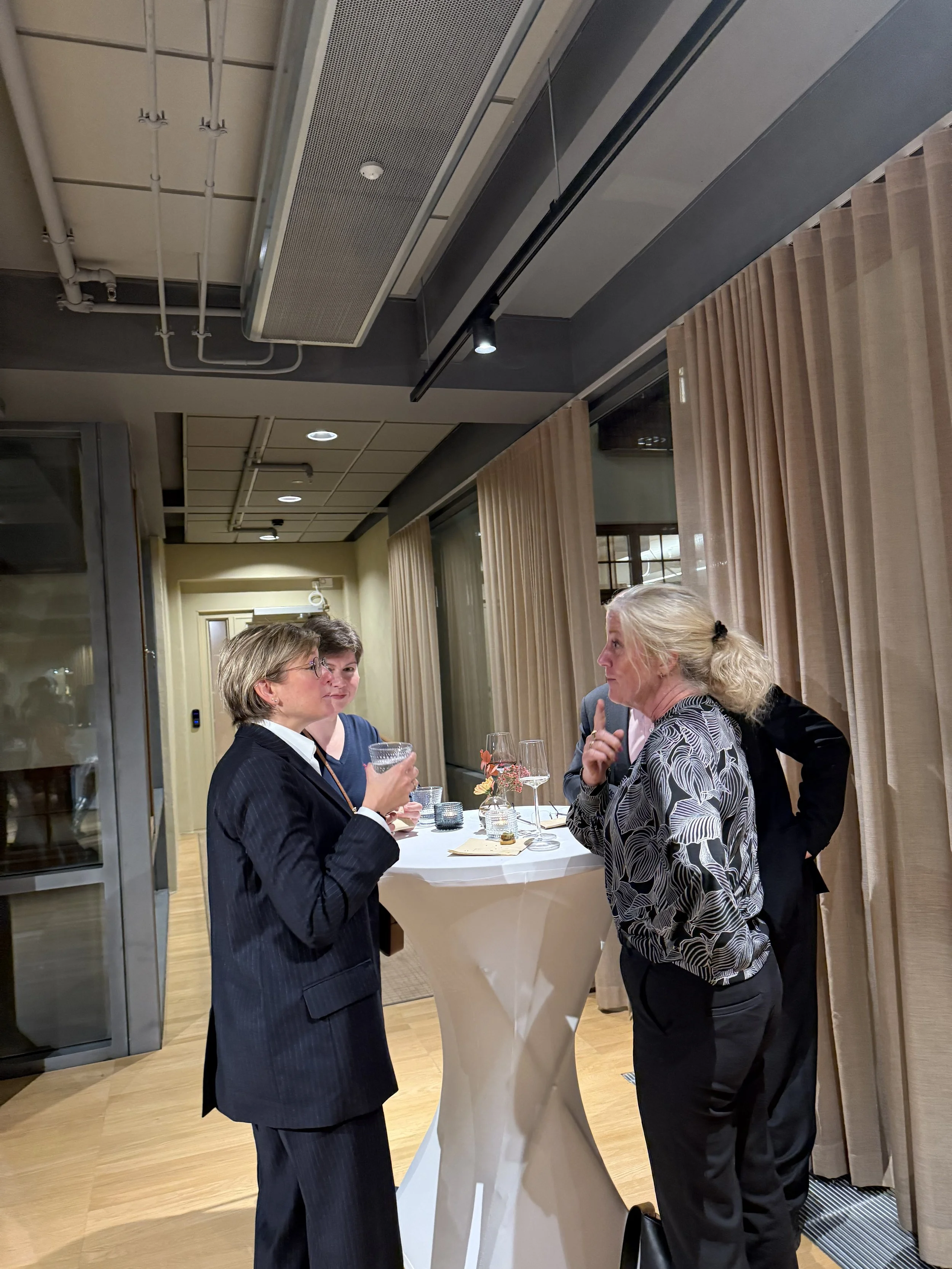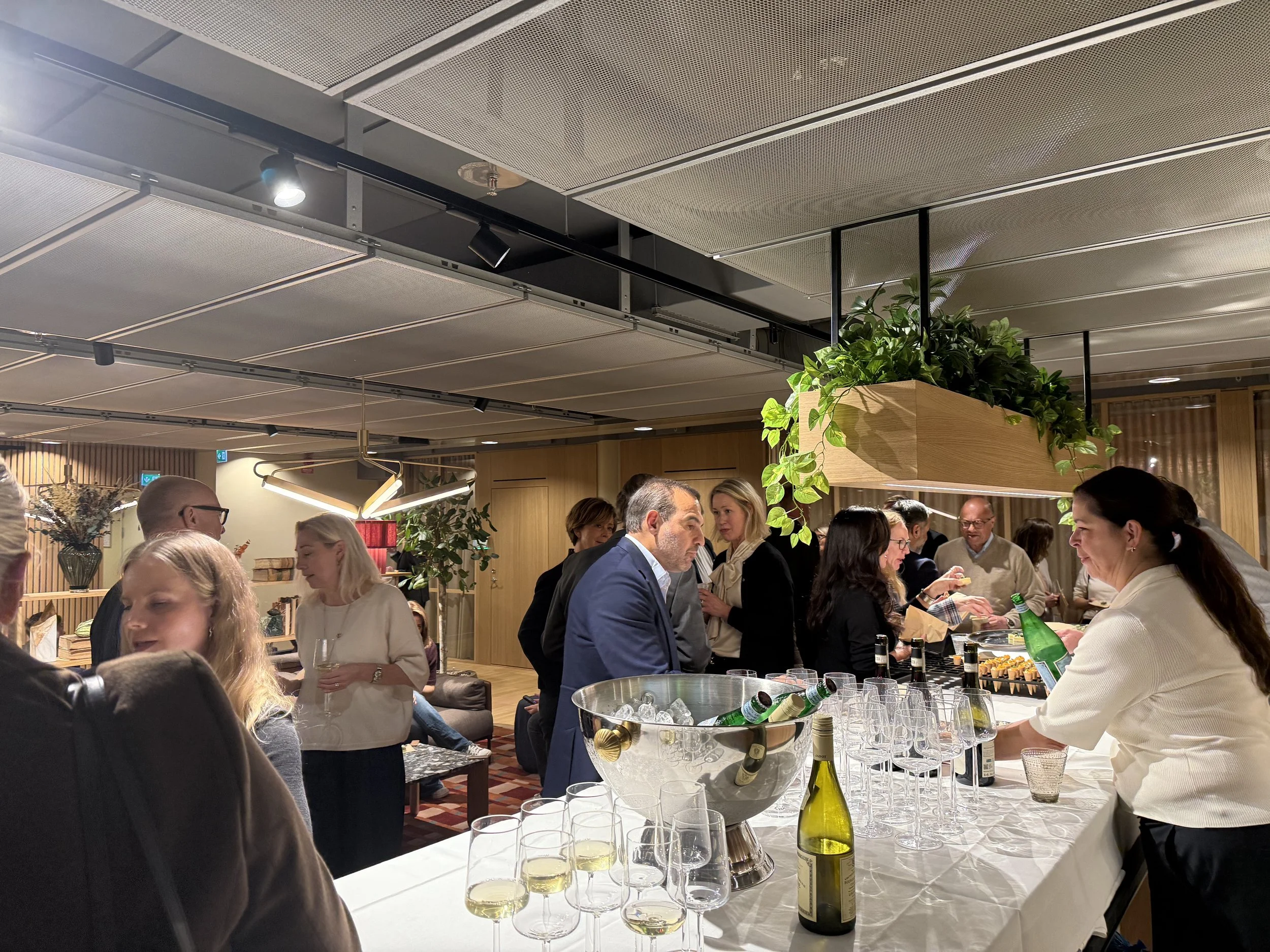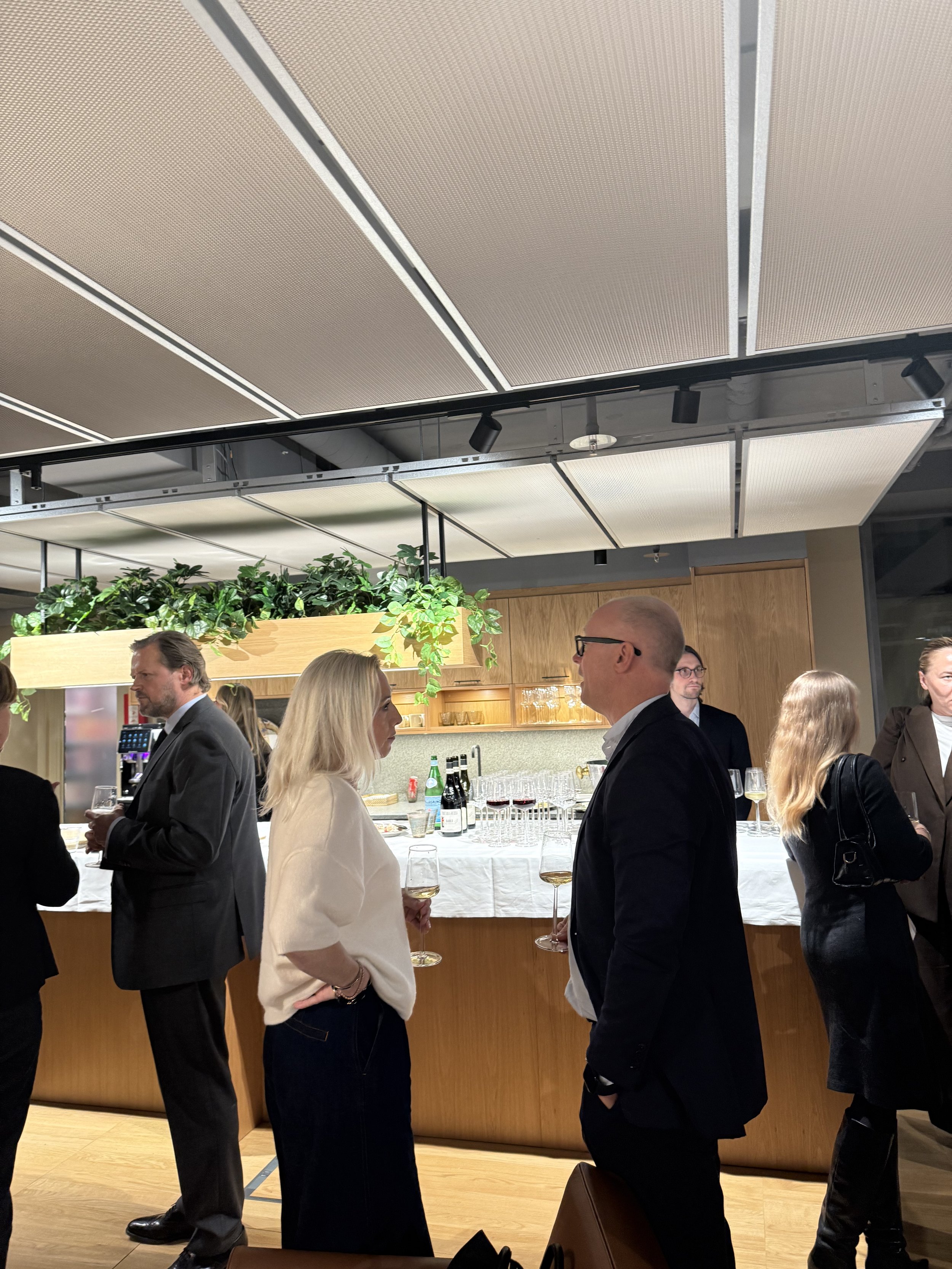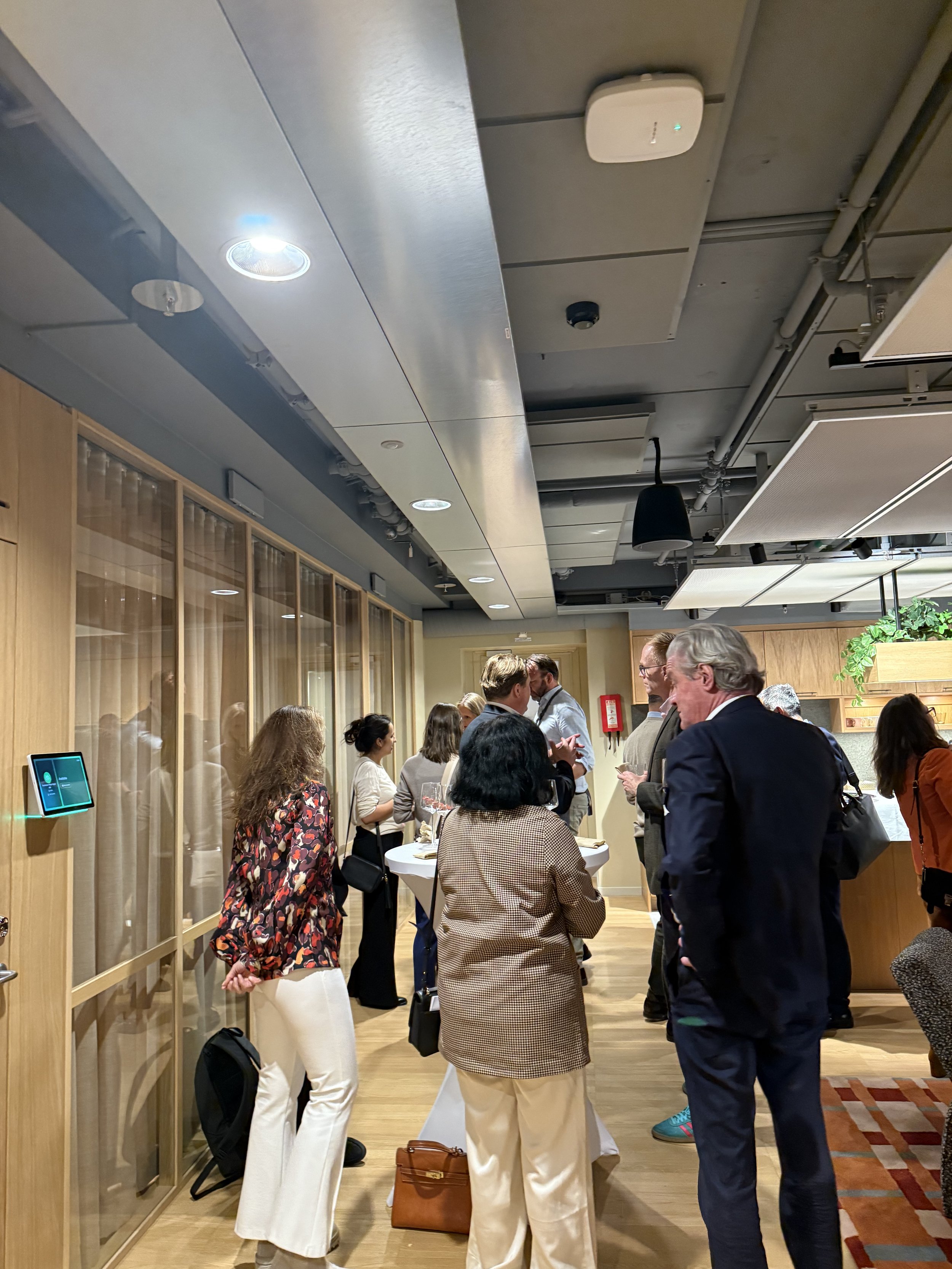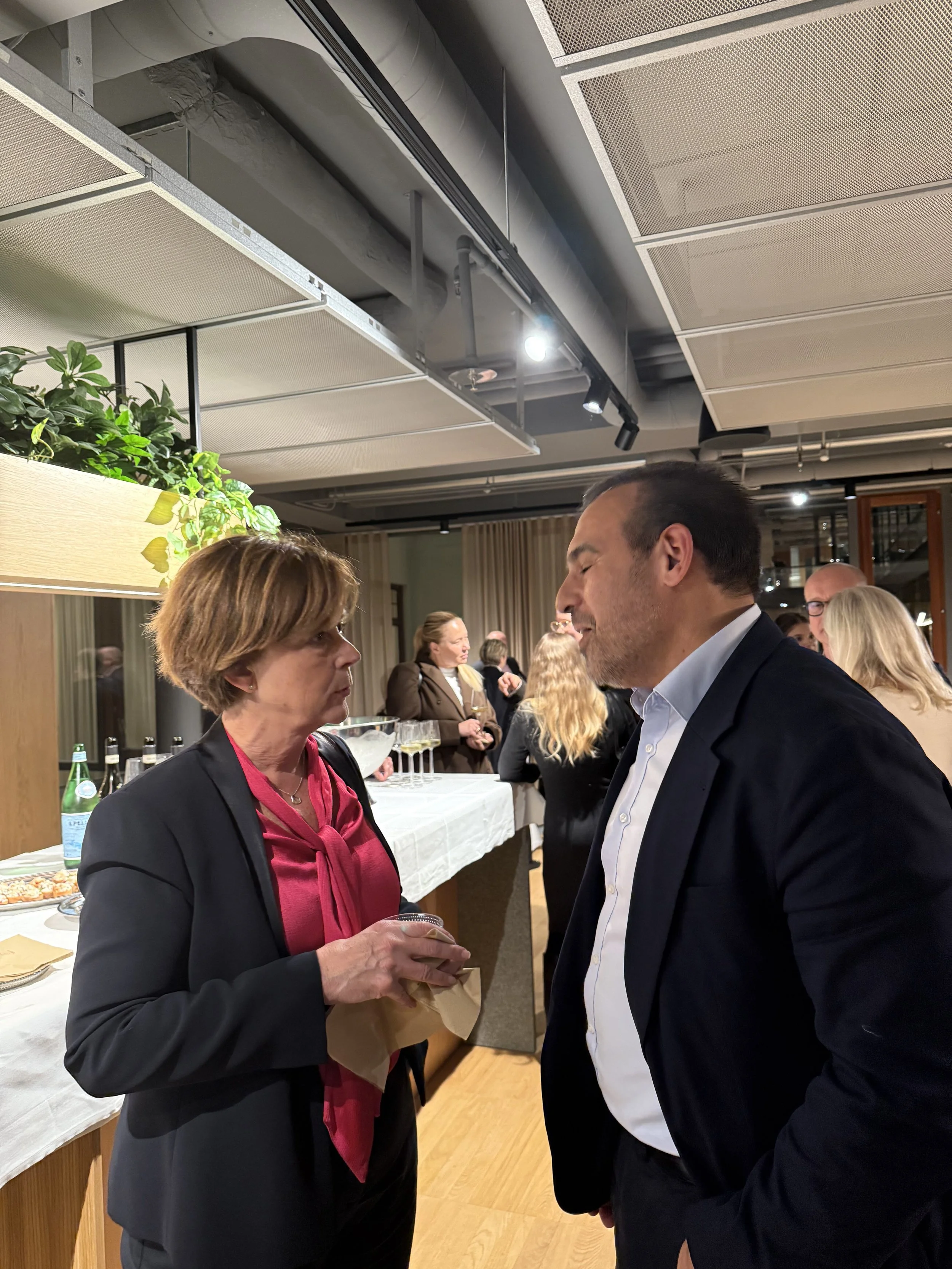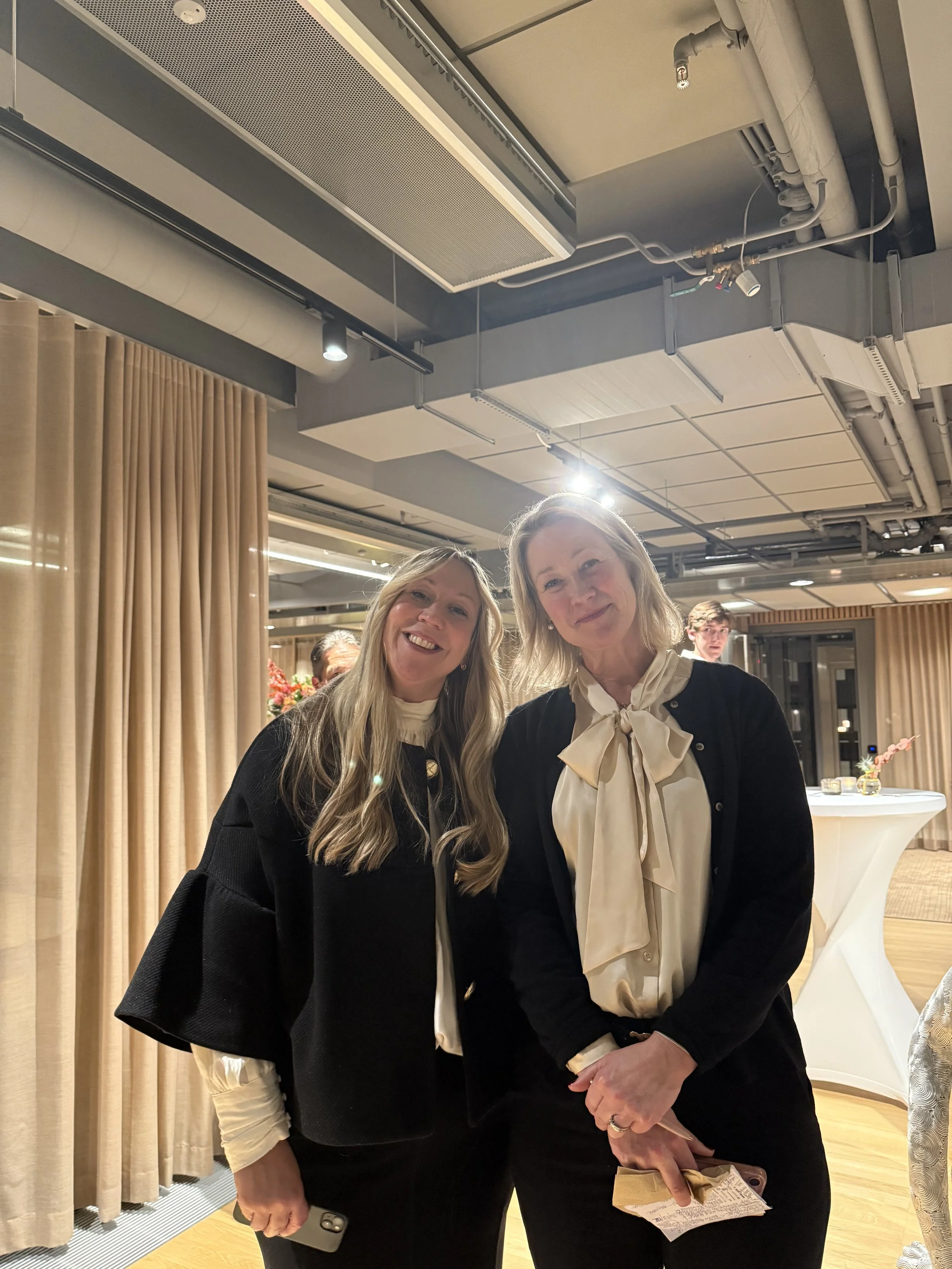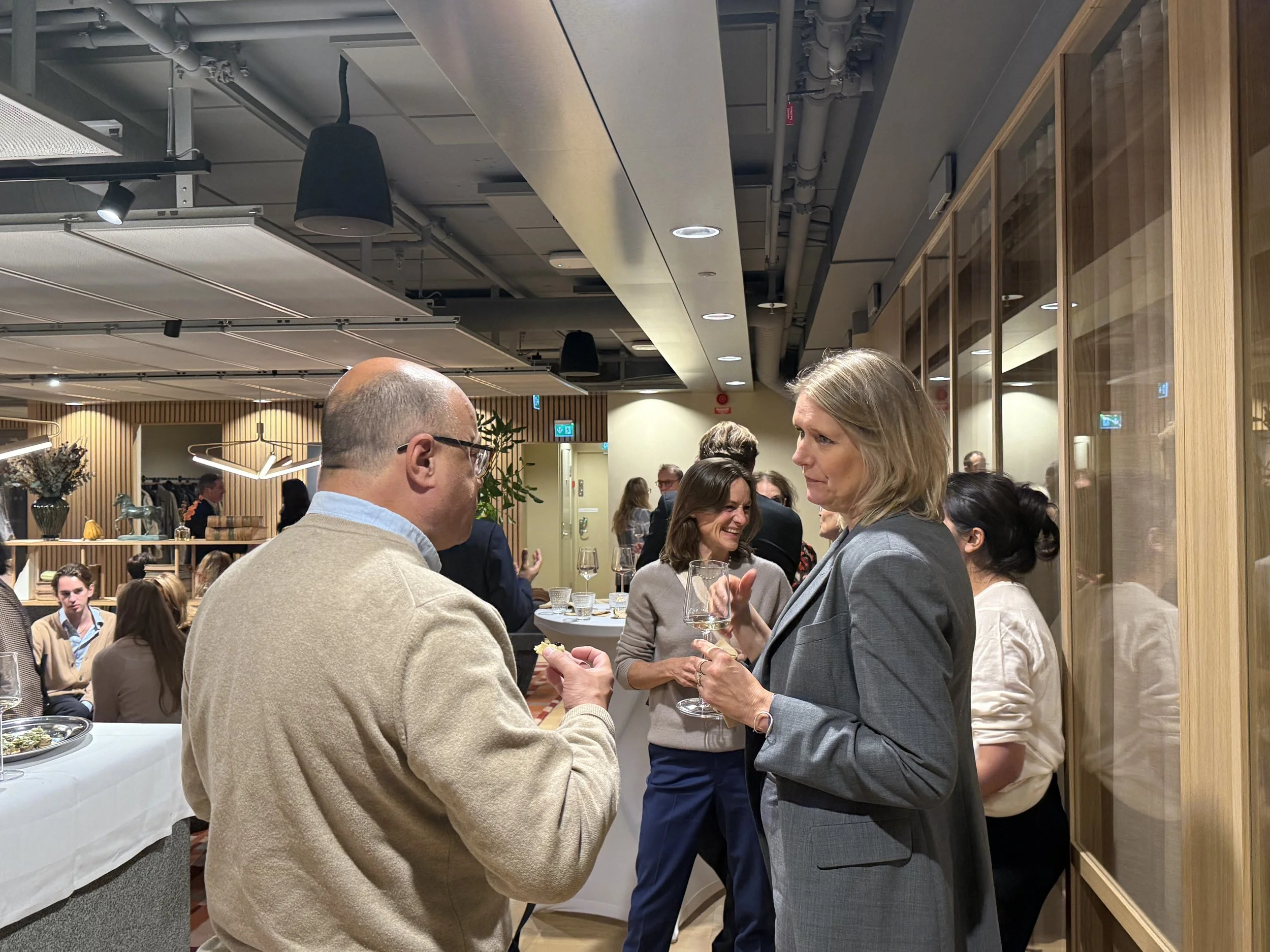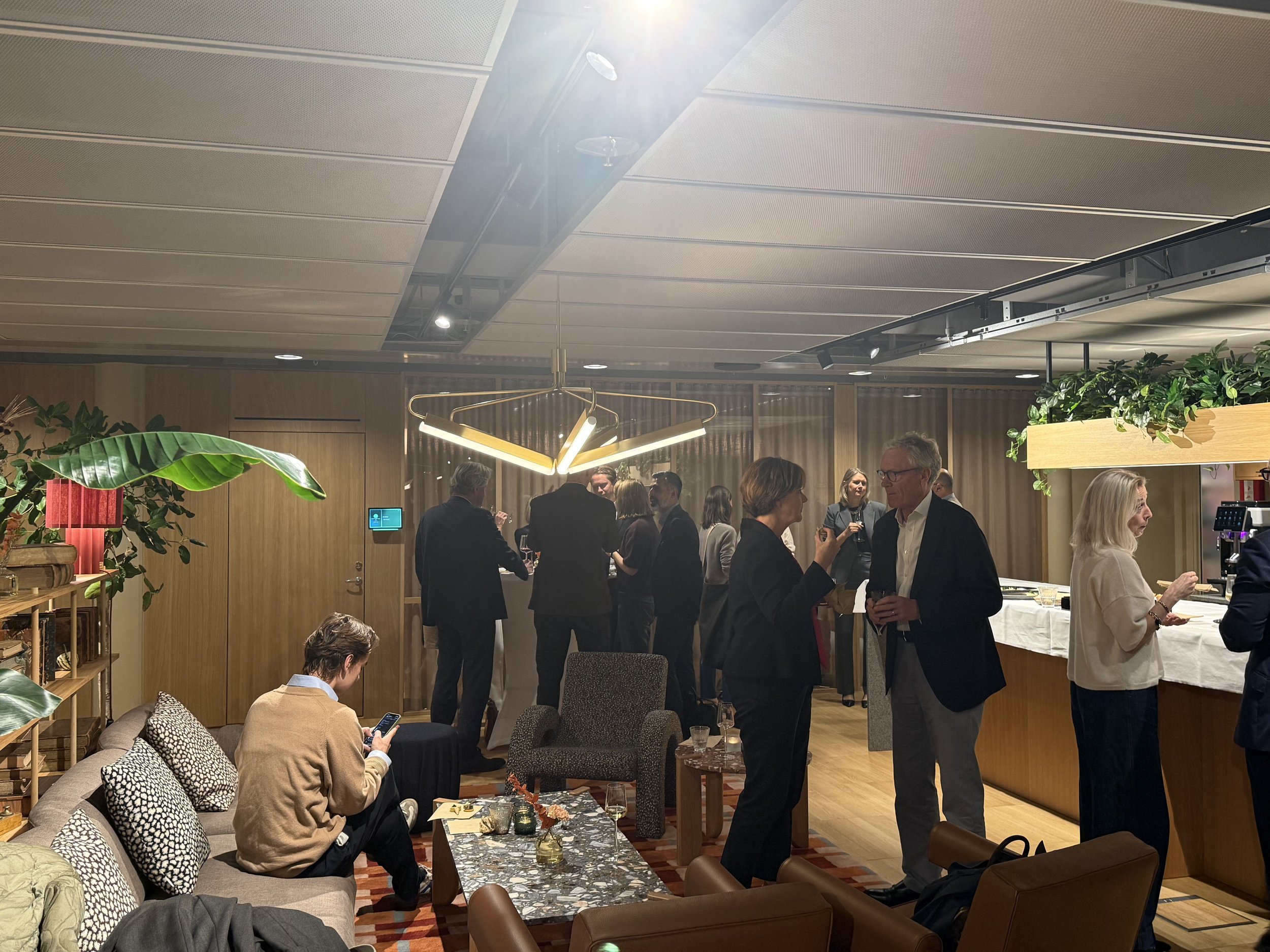Driving Industrial Innovation in Sweden
On 7 October, we were delighted to welcome our members to the latest event in our AI in Practice series, generously hosted by Linklaters. The session explored the efforts underway in Sweden to advance AI industrial development, featuring an expert panel of Annika Ölme, Chief Technology Officer at SKF, Sandor Albrecht, Director of Innovation at Wallenberg Launchpad, and Samad Muhammad, Group Head of Digital & Artificial Intelligence at Stena Line. The discussion was expertly moderated by Ian Richardson, Executive Education at Stockholm University.
The panel provided valuable insights into how AI is reshaping Swedish industry, from early experimentation to large-scale adoption, and examined how companies can remain agile and responsible in their approach.
Annika Ölme reflected on the extraordinary pace of AI development, noting that while the technology itself is not new, its recent evolution has transformed what is possible. She described SKF’s experience of building an AI model that became obsolete within just six months, a vivid reminder of how rapidly the field moves. From this, she said, came two crucial lessons: companies must be ready to adapt quickly and should cluster use cases strategically rather than attempt everything at once. She emphasised that AI should serve as a tool, not the strategy itself, and that strong governance and empowered teams are vital to ensure its responsible use.
Sandor Albrecht placed Sweden’s progress in a global context, observing that while the country may trail Silicon Valley in scale, it has a unique advantage in its ability to bridge industry, academia, and life sciences. He identified three essential pillars for AI growth: data, infrastructure, and talent. Sweden’s culture of innovation, he noted, thrives on collaboration and problem-solving, working off a “You have a problem? We have a startup for that.”, culture.
Samad Muhammad discussed AI from Stena Line’s perspective, stressing that development must remain close to the people it affects. Testing AI tools with experienced captains ensures that innovation strengthens, rather than replaces, human expertise. “Business development equals digital development equals AI development,” he remarked, underlining AI’s growing strategic importance.
Following a dynamic discussion and Q&A, members enjoyed a lively networking reception, continuing the conversation over drinks and food.
We extend our sincere thanks to our speakers, to Ian Richardson for moderating, and to Linklaters for hosting a stimulating and forward-looking evening.



